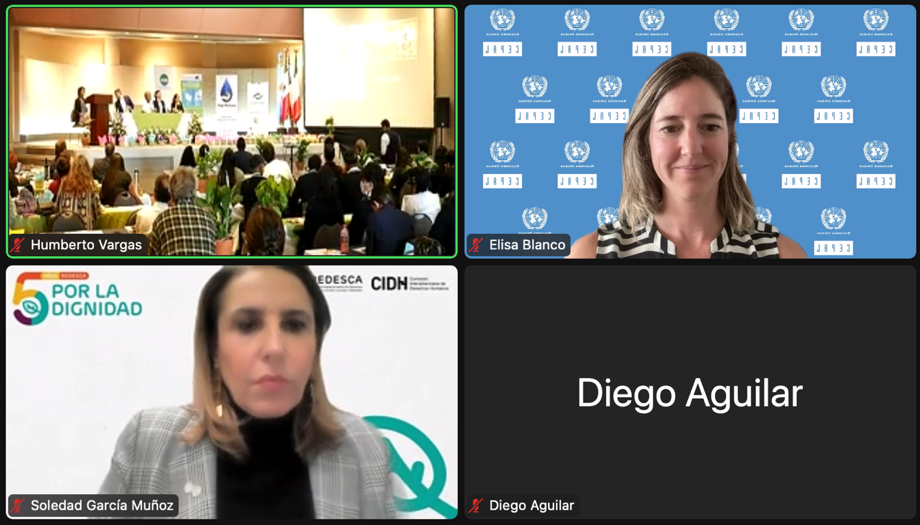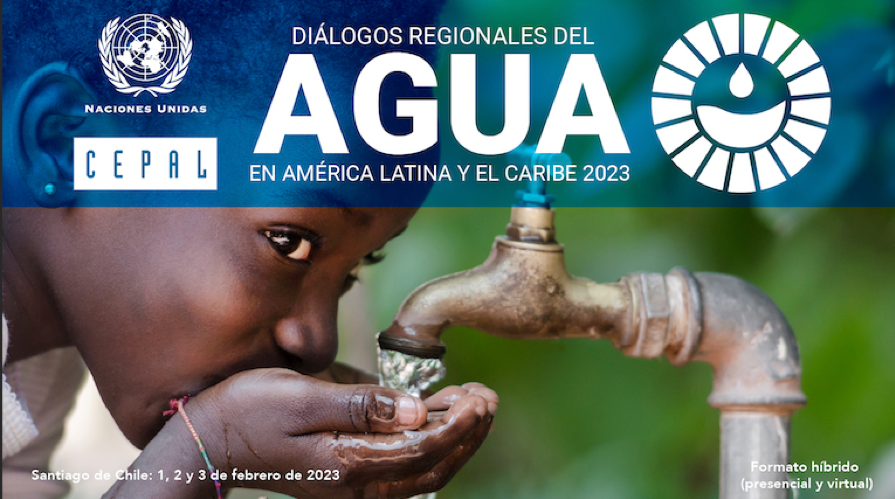Showing the region's progress in achieving the Sustainable Development Goal related to water, ECLAC presented at the Environmental Education and Integrated Water Management Congress in Oaxaca, Mexico
Work area(s)
Topic(s)
Last week, ECLAC was part of the "Environmental Education and Comprehensive Water Management" Congress, whose objective was to create a space for reflection and analysis on comprehensive water management to generate a model of water-environmental education with a gender focus.

With the goal of creating a space for reflection and analysis in integrated water management, together with generating a model of water-environmental education with a gender focus, the "Environmental education and integrated water management" Congress was held. This was organized in Oaxaca, Mexico between February 22 and 24, 2023. The meeting was organized as a closure of the initiative "Water education for sustainable local development", co-financed by the European Union. The initiative focuses on building a water education model for young people and women from indigenous communities, characterized by the improvement of water management, with a focus on local development and its sustainability.
Fondazione AVSI, the University of Bologna and the ADELANTE2 Program of triangular cooperation of the European Union are part of this initiative. Likewise, the Secretary of Environment, Biodiversity, Energy and Sustainability of the State of Oaxaca and UN Women Argentina act as collaborating entities.
Here, ECLAC had the role of presenting the progress of Latin America and the Caribbean in terms of Sustainable Development Goal 6, water and sanitation, in addition to presenting the organization's proposal to move towards a sustainable and inclusive water transition. On behalf of ECLAC, the consultant Elisa Blanco, from the Natural Resources Division, participated, showing the most relevant figures at the regional level. The message was complemented with the proposal to promote policies aimed at achieving a sustainable and inclusive water transition. The foregoing, in order to achieve the human right to water and sanitation without leaving anyone behind; increase equal access and affordability in rates, eradicating water poverty; the elimination of negative externalities (conflicts, pollution and overexploitation); and develop circular economies through the water value chain.
Likewise, the other panels and presentations can be seen at the following links:
Day 1: https://www.youtube.com/watch?v=gcVOy8xje6E
Day 2: https://www.youtube.com/watch?v=b33bzWCq3ws
Related content

Great success: the 2023 Regional Water Dialogues organized by ECLAC had a high turnout and managed to establish a Water Action Agenda for Latin America and the Caribbean
During the past week, ECLAC organized the Third Edition of the Regional Water Dialogues in LAC, which are part of the regional preparatory process for the 2023 United Nations Water Conference.